The Appeal of Anti-Heroes in Adult Swim Shows
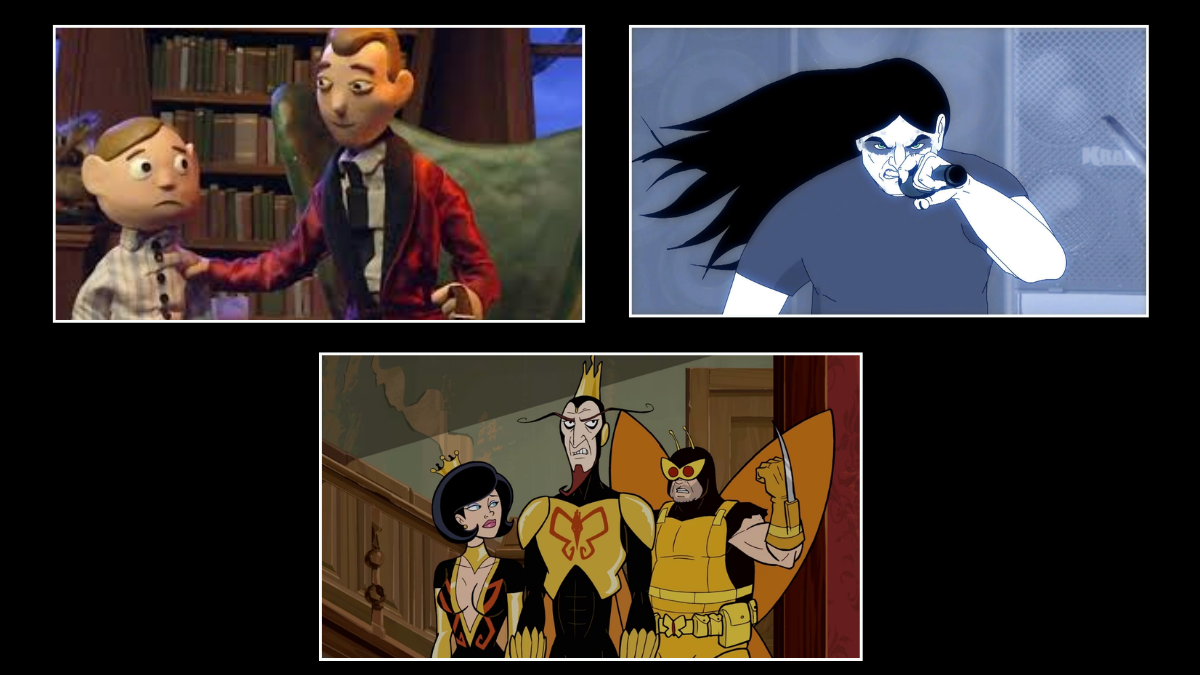
Adult Swim has long been a breeding ground for unconventional storytelling and boundary-pushing characters. Among its most striking features is the network’s embrace of anti-heroes—morally ambiguous, flawed characters who often eschew traditional heroism for something more complicated and, at times, troubling. In shows like Moral Orel, Metalocalypse, and The Venture Bros., Adult Swim invites audiences to explore the complexities of anti-heroes: individuals who make bad choices, struggle with their demons, or simply refuse to fit into neat moral categories.
Why are we so drawn to these deeply flawed protagonists? And what is it about Adult Swim that has made it the perfect home for these characters? Let’s take a deep dive into the rise of anti-heroes in Adult Swim’s most iconic shows, exploring how they reflect modern anxieties and challenge our understanding of morality, responsibility, and identity.
The Rise of the Anti-Hero: Why Do We Love Flawed Characters?
In traditional television, heroes are often paragons of virtue—characters who exhibit bravery, selflessness, and moral clarity. However, in the postmodern era, audiences have grown increasingly fascinated by characters who operate in morally grey areas. Anti-heroes are appealing because they are relatable in their imperfections. They often reflect the complexities and contradictions of real life, where moral choices are rarely black and white.
Adult Swim, with its penchant for subverting genre conventions, has embraced the anti-hero as a way to challenge traditional narratives. These characters aren’t driven by a simple sense of right and wrong; they’re shaped by internal conflicts, personal failings, and often selfish motivations. In a world that feels increasingly uncertain and morally complex, the anti-hero offers a more realistic reflection of human nature.
Moral Orel: Satirizing Rigid Morality Through a Struggling Protagonist
Moral Orel, which premiered in 2005, is one of Adult Swim’s most thought-provoking and controversial shows, using stop-motion animation to explore themes of faith, morality, and hypocrisy in a conservative small town. The titular character, Orel Puppington, begins the series as a naive, well-meaning boy who tries to follow the strict moral codes taught to him by his religious community. However, his efforts to be “good” often lead to disastrous, ironic consequences, as he misunderstands the lessons imparted by his deeply flawed family and community.
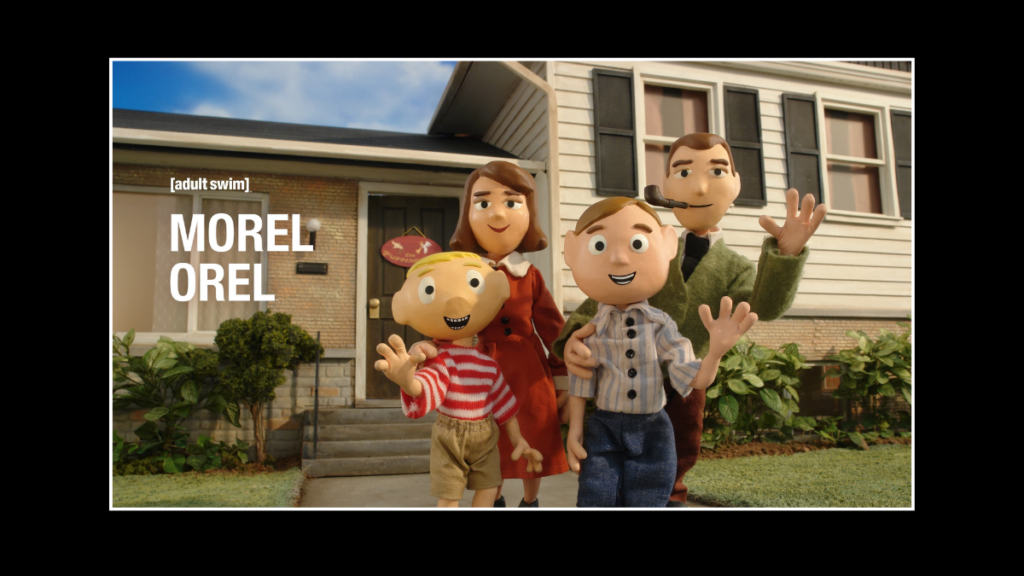
Orel’s journey from blind faith to disillusionment forms the emotional core of the series, and it’s through his development that Moral Orel examines the dangers of moral absolutism. Orel is an anti-hero in the sense that his well-intentioned actions often cause harm, and over time, he becomes increasingly aware of the hypocrisies around him. His father, Clay Puppington, a central figure in Orel’s life, is perhaps the most prominent anti-hero in the series—an alcoholic, emotionally abusive man whose behaviour is a dark contrast to the righteous persona he projects.
The appeal of Moral Orel lies in its stark exploration of the human condition. The show deconstructs rigid moral structures and highlights the complexity of navigating life’s moral challenges. Orel’s transformation from an innocent child into a more self-aware, conflicted character reflects the disillusionment many people experience when faced with the realities of the world.
Metalocalypse: The Dark Satire of Dethklok’s Anti-Heroism
Metalocalypse, which debuted in 2006, offers a much darker and more exaggerated version of the anti-hero archetype through the members of Dethklok, a death metal band so powerful that they control the global economy and cultural landscape. The band members—Nathan Explosion, Skwisgaar Skwigelf, Toki Wartooth, William Murderface, and Pickles—are all deeply flawed individuals, embodying self-destructive, narcissistic tendencies and a complete disregard for the world around them.
The show thrives on satirizing both celebrity culture and the extreme personalities often associated with metal music. Each member of Dethklok is an anti-hero in their own right, indulging in excess and showing little concern for the consequences of their actions. Nathan Explosion, the lead singer, is driven by a love for brutality and destruction, while Murderface is motivated by his own insecurities and self-loathing. Despite their apathy, recklessness, and often morally bankrupt decisions, the band is adored by fans, creating a fascinating commentary on the cult of personality and the idolization of flawed figures.
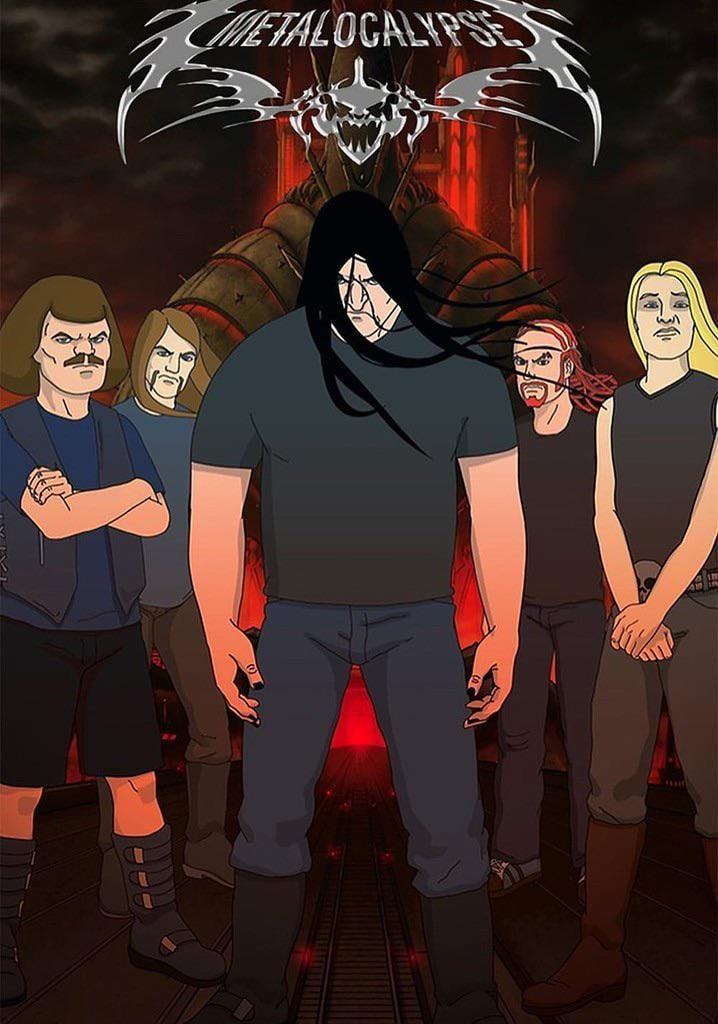
The appeal of Metalocalypse’s anti-heroes lies in their utter rejection of societal norms. They represent a form of catharsis for viewers, offering a fantasy of total freedom from moral and social constraints. At the same time, the show uses these characters to explore deeper questions about fame, power, and self-destruction. Dethklok’s extreme behaviour is a reflection of real-world celebrity excess, and their flaws make them more human—even in their absurdity.
The Venture Bros.: A Legacy of Dysfunctional Anti-Heroes
The Venture Bros., which ran from 2004 to 2020, stands as one of Adult Swim’s most complex and beloved series, blending superhero tropes, sci-fi adventure, and rich character development. At the center of the show is Dr. Thaddeus “Rusty” Venture, a failed super-scientist and the son of legendary adventurer Jonas Venture Sr. Rusty is an anti-hero in every sense—cynical, self-centered, and perpetually haunted by the shadow of his father’s success.
Unlike traditional heroes, Rusty is defined by his incompetence and inability to live up to his family’s legacy. He’s emotionally stunted, morally ambiguous, and often neglectful of his children, Hank and Dean. Despite these flaws, Rusty’s anti-heroic nature is what makes him so compelling. He’s a character trapped by the weight of expectations and past trauma, struggling to forge his own path in a world where he’s constantly reminded of his inadequacies.
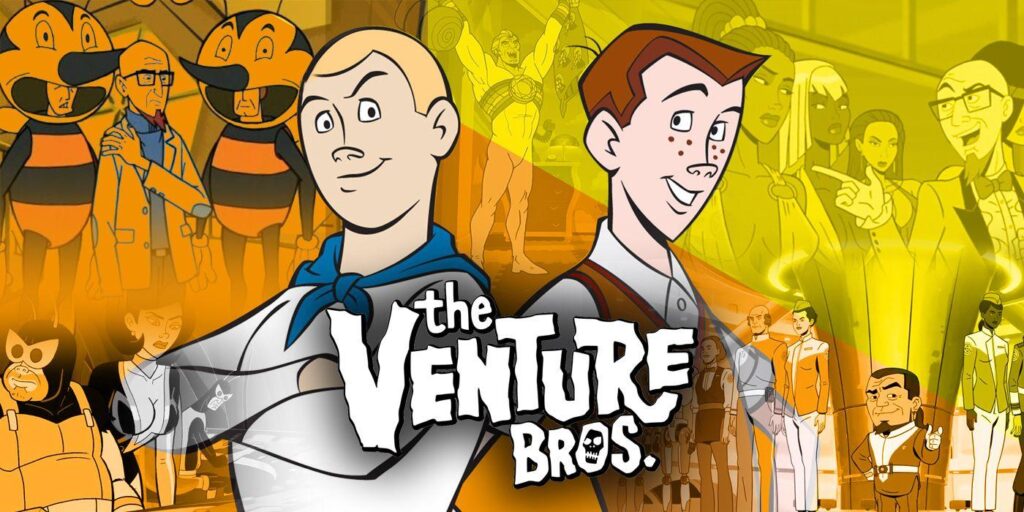
In The Venture Bros., even the show’s villains, such as The Monarch and Dr. Girlfriend, are depicted with rich, nuanced personalities that blur the lines between good and evil. The series thrives on exploring the blurred morality of its characters, where heroes are often as dysfunctional and misguided as the villains they fight.
The anti-heroes of The Venture Bros. offer a mirror to real-world struggles with identity, failure, and the pressure to meet impossible expectations. The appeal of these characters is rooted in their imperfections; they are humanized by their failures and moral shortcomings, making them relatable to viewers who grapple with their own flaws and insecurities.
Why Adult Swim is the Perfect Home for Anti-Heroes
Adult Swim’s willingness to embrace the unconventional, the subversive, and the morally ambiguous has made it the ideal platform for anti-heroes. The network’s late-night, alternative format allows for storytelling that challenges traditional norms and pushes the boundaries of what’s acceptable in mainstream television.
In contrast to typical TV heroes who are driven by a sense of justice or righteousness, the anti-heroes of Adult Swim are often motivated by selfish desires, personal trauma, or the need to survive in a world that doesn’t offer easy answers. They embody the complexities of modern life, where moral decisions are rarely straightforward and where even well-meaning individuals can be deeply flawed.
Moreover, these shows often use anti-heroes to explore deeper societal and psychological themes—Moral Orel questions the rigidity of religious dogma, Metalocalypse critiques the glorification of celebrity excess, and The Venture Bros. deconstructs the pressure of legacy and the failures of traditional masculinity. In doing so, these shows offer not only humour but also profound commentary on the human experience.
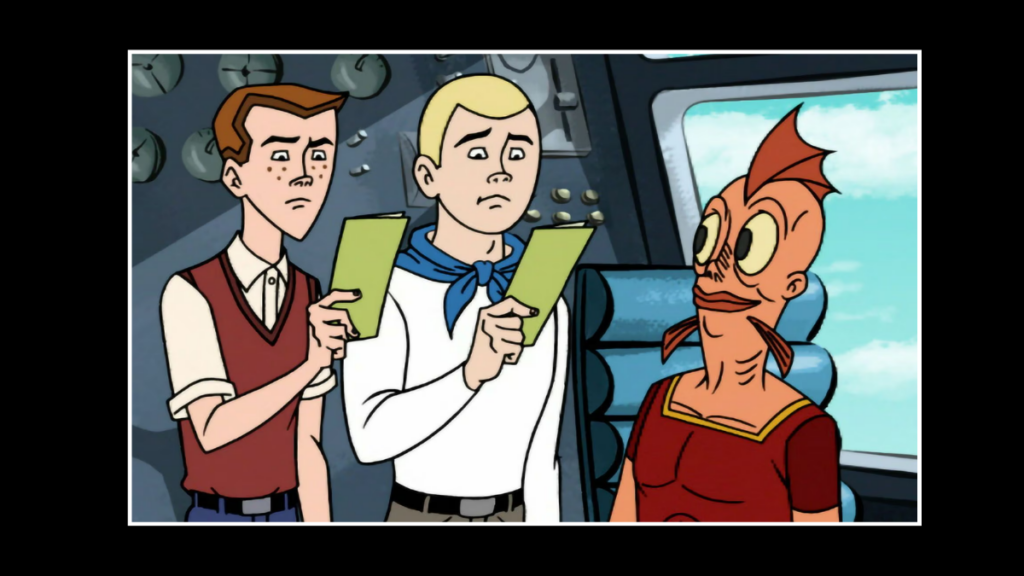
The rise of anti-heroes in Adult Swim shows like Moral Orel, Metalocalypse, and The Venture Bros. reflects a growing interest in morally complex, deeply flawed characters who challenge traditional notions of heroism. These anti-heroes, with their personal struggles and questionable decisions, resonate with viewers who see in them a reflection of their own imperfections and the complexities of the modern world.
By embracing characters who defy easy categorization, Adult Swim has created a space where audiences can explore the darker, messier aspects of human nature—while still enjoying the absurdity, humour, and unpredictability that define the network’s signature style.
–Silviya.Y








